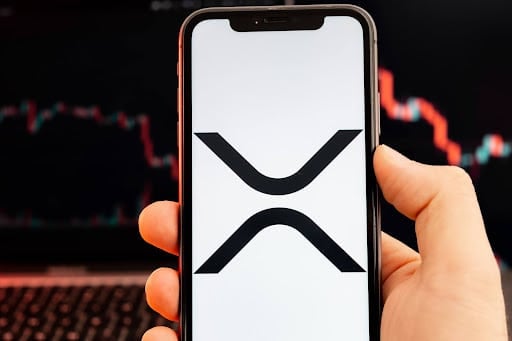- With expectations high for a Bitcoin ETF approval, concerns over a potential “sell the news” scenario arise among market participants.
- Regulatory and political concerns, including worries about market manipulation, privacy issues, and broader implications for other commodities.
Bitcoin’s remarkable surge in 2023, more than doubling its value, was significantly fueled by renewed interest in spot bitcoin exchange-traded funds (ETFs). The unexpected filing by BlackRock with the U.S. Securities and Exchange Commission (SEC) in June drew attention to the cryptocurrency, turning it into one of the top-performing assets of the year, with gains exceeding 100%.
As expectations rise for the approval of a Bitcoin ETF this week, possibly even today, market participants are considering the potential “sell the news” scenario, questioning whether the SEC will greenlight one or several of the numerous spot Bitcoin ETF applications. While a denial remains a possibility, the status quo of Bitcoin ETFs remaining in limbo may not necessarily be detrimental to the crypto industry.
A Bitcoin ETF approval would undoubtedly signal the maturity of the entire crypto sector, a sentiment discussed in a previous analysis. However, concerns from politicians like Sen. Elizabeth Warren and regulators like SEC Chair Gary Gensler highlight worries that legitimizing the industry through a bitcoin ETF could inadvertently endorse a market susceptible to fraud, as expressed in a recent open letter from Better Markets.
Concerns Over Market Manipulations
The SEC’s historical reservations about crypto ETFs, rooted in concerns about market manipulation, have persisted since the Winklevoss twins’ initial filing for a bitcoin ETF a decade ago. Market manipulation, a common concern for ETFs tracking indexes, may pose unique challenges for bitcoin due to its decentralized nature and lack of a single, universally accepted price.
Bitcoin’s price, often calculated by averaging its value across trusted exchanges, can be influenced by deliberate or accidental actions of investors, creating potential arbitrage opportunities. While this manipulation might not currently be a significant concern for most crypto traders, it raises questions about the impact once institutional players, often referred to as “The Quants,” enter the scene.
BlackRock proposed a “surveillance-sharing agreement” through crypto exchanges to address SEC concerns, but skepticism remains regarding its effectiveness. Privacy concerns related to increased market surveillance are compounded by broader questions about who truly benefits from Bitcoin ETFs.
While seemingly advantageous for Bitcoin holders, the associated rise in the cost of underlying assets may have broader implications for commodities like gold and oil, influencing both investments and practical usage costs. The potential approval of a Bitcoin ETF, while a milestone for the crypto market, prompts a nuanced evaluation of its broader implications, reports CoinDesk.
As Bitcoin continues to capture attention and potentially reaches a valuation of $1 million per BTC, questions arise regarding its long-term usability. One of the primary concerns is the impact on transaction fees and whether the increasing value would price many users, particularly those in developing regions, out of the market.
Institutional Investors Short the Bitcoin ETF Market
As per data from Greeks.Live, signals from the Bitcoin options market are contradictory. Short-term implied volatilities (IVs) have experienced a notable decrease today, particularly with the current at-the-money (ATM) option IV for 11 11Jun dropping below 90%, marking a 30% decline within a few hours. Concurrently, amid the breakout to new highs, block trades have shown relatively subdued activity, primarily characterized by the selling of calls and the purchasing of puts.
Credit: Source link












































